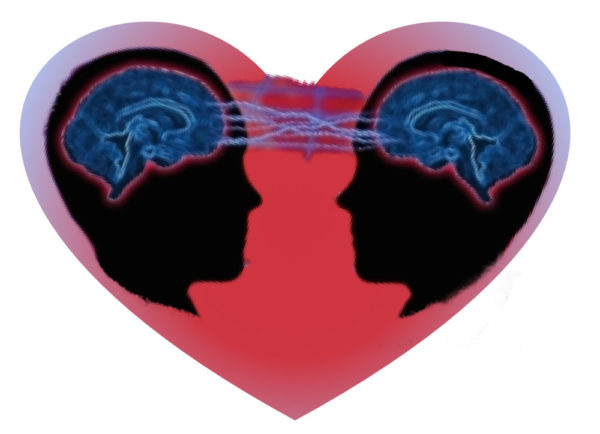SEEKING is the name given to a primary neural circuit that can ignite us with desire and curiosity, and is one of seven affective systems identified by esteemed neuroscientist and GAINS Advisory Board member Jaak Panksepp, PhD, who passed away earlier this year. His life was one of seeking, questioning, exploring, and living fully, and he encouraged many to ask big questions about the importance of emotions in our lives, and in other mammals.
“It is evident that the SEEKING-EXPECTANCY system is a general-purpose system for obtaining all kinds of resources that exist in the world, from nuts to knowledge, so to speak. In short, it participates in all appetitive behaviors that precede consummation; it generates the urge to search for any and all of the “fruits” of the environment; it energizes the dynamic eagerness for positive experiences from tasty food to sexual possibilities to political power; it galvanizes people and animals to overcome dangers either by opposing them or by escaping to safety; it invigorates humans and prompts us to engage in the grand task of creating civilizations. (Panksepp & Biven, 2012, p. 104)”
In 2016, GAINS had shared an article written by member and experienced therapist Rich Armington, LCSW, Seeking Andrew’s SEEKING System, with the GAINS member community. In honor of Dr. Panksepp, we are now sharing this illustrative and informative article about applying his affective neuroscience work clinically, with everyone. (Thank you to Rich, the article’s author, for making his work publicly available!)
Here is a brief excerpt from Seeking Andrew’s SEEKING System:
Andrew’s lack of motivation and general lifelessness was calling the work of Jaak Panksepp to my mind. His most recent book (with Lucy Biven, 2012), The Archaeology of Mind, speaks eloquently about our primary emotional-motivational systems, those powerful inborn drives that stimulate movement in the service of survival. They are located not in the limbic or cortical regions of our brains, but deeper in the recesses of the early-developing midbrain. Emotion and motivation come from the same root having to do with the vital urge to move outward and explore. While Panksepp identifies seven of these systems, he emphasizes that SEEKING is primary and animates all the others.
Read Seeking Andrew’s SEEKING System here.
A note from the author, Rich Armington:
Jaak Panksepp, Ph.D. has had a significant impact on my work, and more broadly, my life, since reading his truly inspiring book, The Archaeology of Mind: Neuroevolutionary Origins of Human Emotion, in 2012. I’ve also heard him speak in person a few times. The idea that basic emotion emerges not from the cerebral cortex, but from deep ancient brain structures has guided me and motivated my own SEEKING behaviors as a clinician. In addition, his book moved me as he openly, and genuinely shared his personal life challenges alongside his many implicit and explicit successes. Jaak Panksepp was a courageous man who stirred debate in an area that is foundational to much that is important to the work of many of us.
Thank you Jaak, I miss you. Our GRIEF is engaged.
Look ahead: To continue to honor Jaak Panksepp, GAINS is preparing and will be sharing a special collection of reflections honoring Jaak Panksepp’s life and work, available later this year.
About the author of Seeking Andrew’s SEEKING System: Rich Armington, LCSW, CGP, is a licensed clinical social worker in private practice in Austin, Texas. In 1985, he began working as a psychotherapist at the University of Texas, entering into private practice in 1989 where he currently offers psychotherapy for individuals, couples, and groups. The wide field of Interpersonal Neurobiology and its various practices greatly animates his work. Rich is a licensed Systems-Centered Practitioner and Trainer. He has studied numerous theories of change, and trained in relational, body-centered, neuro-affective models such as Somatic Experiencing, AEDP, PACT, EMDR, as well as studying with Bonnie Badenoch, PhD, and previously with Dr. Mary Main, receiving training in the Adult Attachment Interview. Contact Rich at armington@gmail.com.
Panksepp, J., & Biven, L. (2012). The Norton series on interpersonal neurobiology. The archaeology of mind: Neuroevolutionary origins of human emotion. New York: W W Norton & Co.

